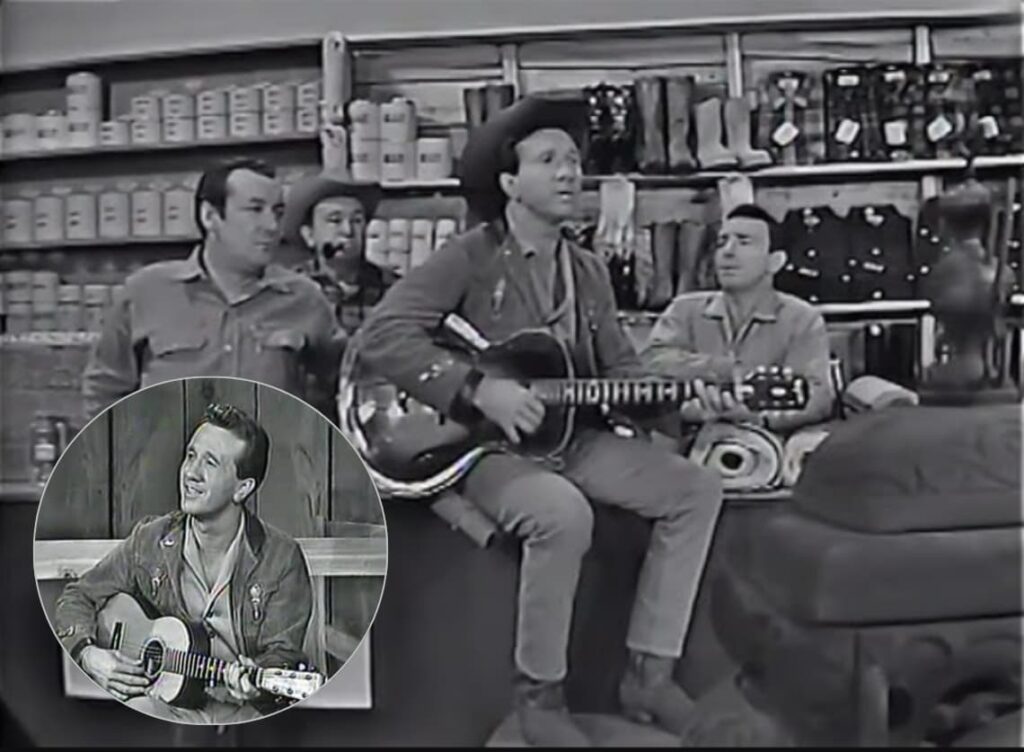
“Pride and the Badge” is a poignant reflection on the sacrifices and honor of a lawman’s life.
Marty Robbins’s 1960s output is often defined by his groundbreaking narrative songs, the kind that took listeners on a journey to the dusty plains of the Old West or the romantic streets of Mexico. Yet, it’s in his more introspective and heartfelt ballads that we find the true depth of his artistry. One such gem, a song that perhaps hasn’t received the widespread recognition of hits like “El Paso” or “A White Sport Coat (and a Pink Carnation),” is the deeply affecting “Pride and the Badge.” This isn’t a tune about gunfights and outlaws; it’s a song about the man behind the badge, the quiet duty, and the heavy toll that commitment to the law can take. Released as a single in 1960, the song, to the surprise of many, didn’t achieve a high chart position, but it held a special place for many radio listeners who gravitated towards more traditional country narratives. It was a B-side to the single “Is There Any Chance,” a more pop-oriented tune that found its way to a modest position on the Billboard Hot 100. Despite its relatively obscure chart performance, “Pride and the Badge” remains a fan favorite and a testament to Robbins’s ability to craft a powerful story in under three minutes.
The song’s story is one of quiet sacrifice. It delves into the internal monologue of a lawman, a man who has devoted his life to his community, upholding justice and protecting the innocent. He speaks of the long nights spent away from his family, the constant danger, and the unspoken weight of his responsibilities. The song’s emotional core lies in the two central symbols: the “pride” he takes in his work and the “badge” he wears as a symbol of that authority. Robbins captures the essence of a life lived for others, a life where personal desires are often secondary to the greater good. It’s a tale that resonates deeply with anyone who has ever known a police officer, a firefighter, or any individual in a profession of public service. The narrative is a quiet protest against the romanticized violence of the Western genre, instead choosing to focus on the human cost of being a hero.
Marty Robbins himself had a deep admiration for law enforcement and often drew inspiration from stories of the Old West, but he was always careful to bring a sense of realism and humanity to his narratives. The song feels personal, almost as if Robbins is telling a true story he heard from a local sheriff or a town marshal. The simple acoustic arrangement, driven by Robbins’s warm baritone and a gentle guitar melody, only enhances the song’s authenticity and emotional punch. It’s a song that doesn’t need a soaring chorus or a dramatic crescendo to make its point. It speaks to the listener in a hushed, intimate tone, inviting them to sit for a moment and reflect on the quiet heroes of their own lives. “Pride and the Badge” is more than a song; it’s a timeless tribute, a heartfelt thank you to the men and women who put their lives on the line every day. It’s a song that reminds us that true heroism is often found not in grand gestures but in the unwavering commitment to a noble cause.
“Pride and the Badge” is a song that invites us to remember a time when heroes were not just characters on the silver screen but were the men and women who lived and worked in our communities. It evokes a sense of nostalgia for a simpler time, when a handshake and a man’s word were all you needed. It’s a song for anyone who has ever worn a uniform, a song for the wives and children who have waited at home, and a song for all of us who have benefited from the quiet courage of others. Marty Robbins, a master storyteller, has given us a gift, a powerful and moving piece of music that continues to speak to our hearts and minds, reminding us of the immense strength found in quiet dignity and unwavering duty.